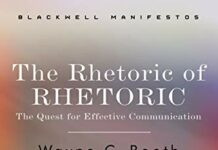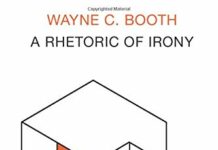
Ebook Info
- Published: 2006
- Number of pages: 336 pages
- Format: PDF
- File Size: 3.28 MB
- Authors: Wayne C. Booth
Description
In his autobiography, My Many Selves, Wayne C. Booth is less concerned with his professional achievements—though the book by no means ignores his distinguished career—than with the personal vision that emerges from a long life lived thoughtfully. For Booth, even the autobiographical process becomes part of a quest to harmonize the diverse, often conflicting aspects of who he was. To see himself clearly and whole, he broke the self down, personified the fragments, uncovered their roots in his experience and background, and engaged those selves and experiences in dialogue. Basic to his story and to its lifelong concern with ethics and rhetoric was his Mormon youth in rural Utah. In adulthood he struggled with that background, abandoning most Mormon doctrines, but he retained the identity, ethical questions, and concern with communication that this upbringing gave him. The uncommon wisdom and careful attention that empower Wayne Booth’s many other books cause My Many Selves to transcend its genre, as the best memoirs always do. The book becomes a window through which we who read it will see our own conflicts, our own ongoing struggle to live honestly and ethically in the world. Wayne Booth died in October 2005, soon after completing work on this autobiography.
User’s Reviews
Editorial Reviews: Review Here the life and the form of its telling are integral—the book enacts the very divisions Wayne Booth is talking about, and what he is talking about has shaped the work he has done that has resonated with so many over the years. The honesty here is valuable in itself as people, Mormon or not, recognize their own conflicts that constitute the process of trying to live a better life, an effort we all tend to bungle. So as an autobiography, this is important. As a study in ethics and rhetoric it is important. As an experience of reading it is important—it comes together for the reader at the end in ways that tell the story of any honest life.Gregory Clark, editor, Rhetoric Society Quarterly About the Author Wayne C. Booth was born February 22, 1921, and died October 10, 2005. Descended from Mormon pioneers, he began as a young man to wrestle with church teachings, a struggle that informed both his decision to root himself in the secular world and his particular interest in the field of rhetoric. He earned a bachelor’s degree from Brigham Young University in 1944, a master’s in 1947, and a PhD in 1950, both from the University of Chicago.He was the author of several books, including the highly influential The Rhetoric of Fiction. He argued that as a technique rhetoric can enhance communication between author and reader, not merely manipulate the reader’s response. To Professor Booth, literature was not so much words on paper as it was a complex ethical act. The author’s task, then, is to draw readers into the web of narrative and hold them there. The critic’s task is to tease out the specific rhetorical devices. He later considered rhetoric in a number of forms beyond the narrative, from political discourse to television commercials. Booth was until 1992 professor of English at the University of Chicago, where he was associated with the Chicago school of literary criticism and became especially well known for his works on rhetoric. A former president of the Modern Language Association and founder and editor of the journal Critical Inquiry, his widely influential books have included The Rhetoric of Fiction, Now Don’t Try to Reason with Me: Essays and Ironies for a Credulous Age, A Rhetoric of Irony, Modern Dogma and the Rhetoric of Assent, Critical Understanding: The Powers and Limits of Pluralism, The Company We Keep: An Ethics of Fiction, and For the Love of It: Amateuring and Its Rivals (based largely on his devotion to cello playing).
Reviews from Amazon users which were colected at the time this book was published on the website:
⭐I did my Ph.D. At the University of Chicago 1972-1979 and hence overlapped with Wayne Booth’s years of teaching there, indeed one could say with his heyday, but never had a class with him and never met him. Nevertheless, two of his books have had a tremendous influence on me, The Rhetoric of Fiction, which I read while a graduate student, and Now Don’t Try to Reason with Me, which I read slightly later. The present book is of a piece with them, in that it reflects his “rhetorological” approach to life and thought. It is a very sane, very practical, and very humane philosophy. This book is a good and worthy production in this vein. Why only four stars? Because, like many of the products of the Chicago School of (Literary) Criticism, while very balanced and full of insight, it can also be a bit plodding.
⭐I am a real fan of Wayne Booth’s writings on and insights into rhetoric and argumentation. But I found that the technique of constant long quotations from his own journals and the trope of his many selves became wearing after a while. I started longing for more first-person singular pronouns rather than the third-person pronouns referring to one self or another. And I would have preferred a more chronological presentation. And more about his rheotoric.
⭐
Keywords
Free Download My Many Selves: The Quest for a Plausible Harmony in PDF format
My Many Selves: The Quest for a Plausible Harmony PDF Free Download
Download My Many Selves: The Quest for a Plausible Harmony 2006 PDF Free
My Many Selves: The Quest for a Plausible Harmony 2006 PDF Free Download
Download My Many Selves: The Quest for a Plausible Harmony PDF
Free Download Ebook My Many Selves: The Quest for a Plausible Harmony

